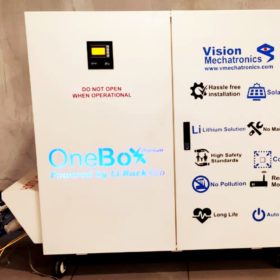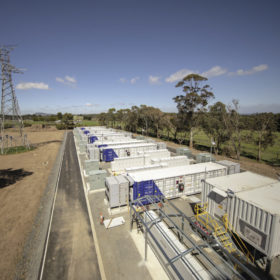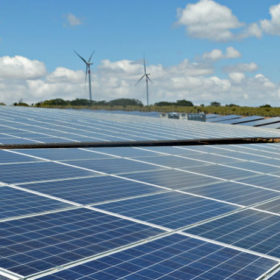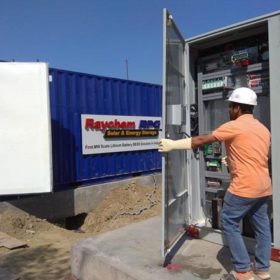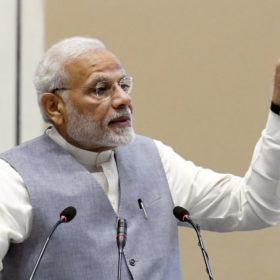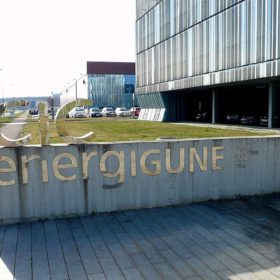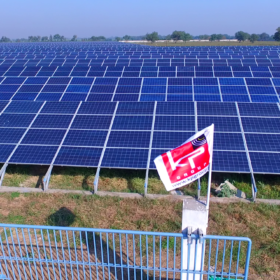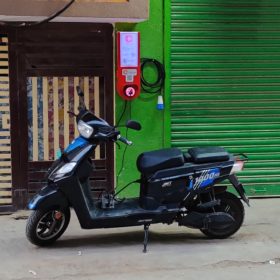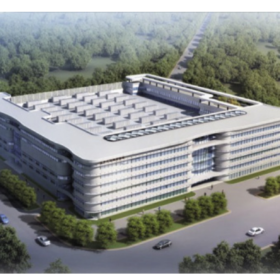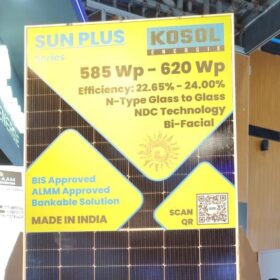Trade shows postponed over coronavirus fears
As the contagion continues to spread, its impact is beginning to be felt on the solar industry outside China with the cancellation or postponement of major trade shows and conferences that were set to take place over the next few weeks.
A plug-and-play solar-powered battery back-up solution for the home
The OneBox, from Indian manufacturer Vision Mechatronics, consists of a lithium battery, hybrid inverter and solar charge controller to give a hassle-free solution for electricity back-up during power outages. Solar rooftop owners are offered a grid feed feature to maximize net metering income from any excess power generated.
Global energy storage market to surge to 15 GW by 2024
As the sector continues to grow rapidly, delays in manufacturing scale-ups, difficulties sourcing raw materials and a separate path taken by the electric vehicle sector could all chuck ‘sand in the gears’, according to analyst Wood Mackenzie.
Optimal grid utilization imperative whilst integrating renewable energy
The Solar Energy Corporation of India should amend the 400 MW round-the-clock supply tender to make co-location of solar, wind and storage mandatory in order to ensure optimal utilization of transmission infrastructure, says NSEFI chairman.
BHEL wins battery energy storage system order for Delhi discom-TERI pilot
By offering 410 KWh of cumulative battery capacity for a total cost of Rs2.51 crore, the state-owned engineer and manufacturer emerged winner in the auction which saw overwhelming response from both Lithium-ion and advanced lead-acid storage providers.
Large scale storage still some way off
Consultancy Bridge to India has looked into its crystal ball to predict India will add 10 GW of solar capacity this year and the same next year before deployment slows to 7 GW per year in 2022 and 2023, dogged by hurdles such as an inexplicable ongoing demand for new coal-fired power plants.
Bridging the gap between battery and supercapacitor
By engineering the structure of a hard carbon electrode, scientists at the CIC energIGUNE research center have created an ‘ultrafast battery’ which has been shown to combine the energy density of a lithium device with the fast discharge times normally associated with supercapacitors.
KPI Global bags 2.66 MW captive solar projects from textile customers
Having bagged 2.250 MW capacity in January, the Gujarat-based power generator has won four more solar projects—900 KW for JPB Fibers, 675 KW for N.J. Textile Industries, 135 KW for N.J. Texturisers and 950 KW for Sailaxmi Tex—aggregating to a capacity of 2.66 MW.
Startup launches cheapest EV charger, plans to install 100,000 units in a year
Having bagged orders for 470 chargers in pilot stage itself, Bengaluru based electric scooter startup FAE Bikes plans to aggressively expand its IOT enabled EV charging network. The chargers—costing just Rs 10,000—can be set up anywhere including small shops and homes with standard power supply.
The long read: Go big, go with the flow
While lithium batteries have taken center stage for energy storage, vanadium redox flow batteries could gain considerable traction in 2020. In previous years, vanadium battery installations around the world have done little more than provide proof of concept and a test bed for manufacturers, argues David Gillam from Mastermines. He looks at what may have changed since then and why a surge in batteries utilizing vanadium may be closer than many believe, with China taking the lead.

